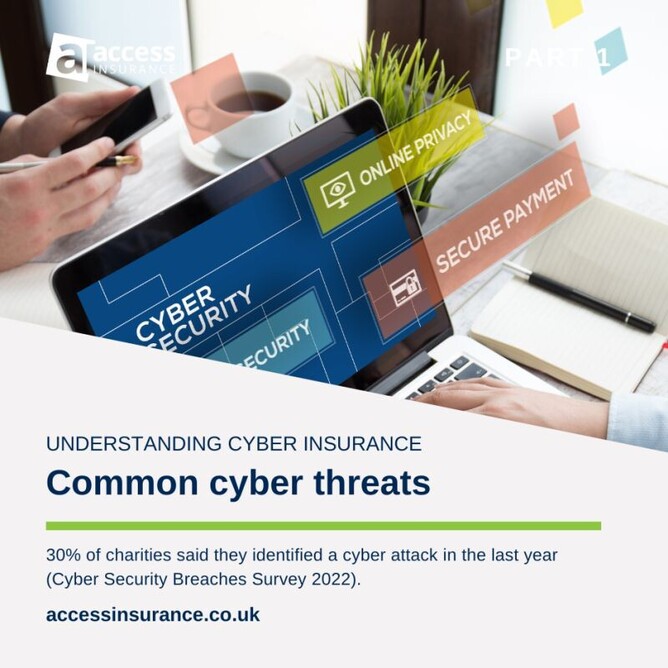Charities and not-for-profit organisations often hold sensitive information such as donor data, financial records, and beneficiaries' personal information. This, combined with less frequently reviewed cyber security, makes them attractive targets for cyber-criminals. The following are some of the most common cyber threats for charities:
▶ Phishing is a form of social engineering where cybercriminals attempt to steal sensitive information by posing as a trustworthy entity in emails, texts, social media messages, or calls.
▶ Ransomware is malware that encrypts files on a computer system and demands payment for the decryption key. It can cause significant disruption and financial losses for individuals and organisations.
▶ Viruses are malware that can replicate themselves and spread to other computers. They could cause damage to computer systems, corrupt files, and steal personal information.
▶ Data breaches occur when an unauthorised party accesses personal or sensitive data. They could result in identity theft, financial fraud, fines, extortion and reputational damage.
▶ Identity theft/impersonation is the unauthorised use of someone's personal information and is often combined with phishing attacks.
▶ Website hacking/takedowns refer to making a website unavailable to its intended users, often through distributed denial-of-service (DDoS) attacks. Hackers could also edit some code or redirect the site to harmful sites and make your web visitors targets of cybercrime.
▶ Online financial fraud can occur through phishing attacks, extortion in ransom demands or stealing donor payment information.
To find out how your CSCBG Memebership can help you get great deals with Access Insurance please contact us at buy@cscbg.org.uk


